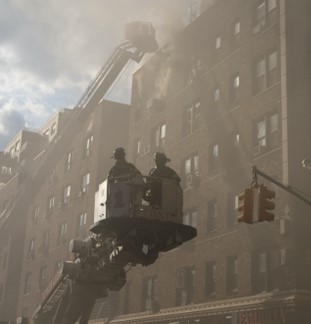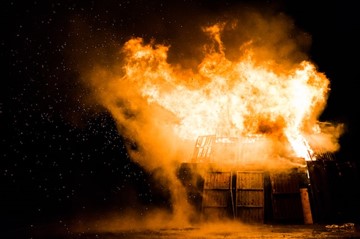The National Fire Protection Association (NFPA) publishes over 300 consensus codes and standards designed to reduce the effects and possibility of fires across the country. Administered by more than 250 Technical Committees comprised of around 8,000 volunteers, these standards keep businesses and local areas safe from otherwise devastating flames.
All companies are responsible for keeping a compliant workplace, including remaining abreast of the ever-updating codes outlined by the nonprofit organization. Devin Doyle of Newport Beach says that even though legal enforcement of the standards is non-existent, millions of businesses around the world choose to comply for the undeniable impacts on safety.
Understanding the NFPA Standards
The Association is perhaps best known for the development and maintenance of the NFC, or National Fire Code, which contains the more than 300 consensus standards that outline various facets of fire safety. The standards cover an extensive topic range, including electrical hazards, flammability, and response plans.
The standards showcase best practices for protecting life, limb, and property from fire and associated risks. Localities and even entire states have adopted at least some of the codes and standards as law. Therefore, businesses must adhere to those that have found their rightful way into official state documentation.
Failing to comply with those in state law can result in legal action and/or hefty fines. However, those that are not in state law are consensus standards, meaning businesses follow the recommendations because other companies do. Businesses that don’t follow them will not come under legal action or receive fines, but companies that do may not wish to work with them.
Despite hundreds of NFPA standards existing for businesses, the following are the most commonly referenced:
- NFPA 1: Fire Code
- NFPA 101: Life Safety Code
- NFPA 70: National Electrical Code
- NFPA 13: Standard for the Installation of Sprinkler Systems
- NFPA 25: Standard for the Inspection, Testing, and Maintenance of Water-Based Fire Protection Systems
- NFPA 30: Flammable and Combustible Liquids Code
- NFPA 31: Standard for the Installation of Oil-Burning Equipment
- NFPA 33: Standard for Spray Application Using Flammable or Combustible Materials
- NFPA 34: Standard for Dipping, Coating, and Printing Processes Using Flammable or Combustible Liquids

The Importance of Complying with NFPA Standards as a Business
Every business should be aware of the NFPA standards. After all, they are designed to protect the public and property from fire, electrical, and similar hazards.
Technically speaking, businesses must only comply with the standards set out in law. However, many choose to go the extra mile and comply with all the NFPA’s codes. The standards are constantly updated to reflect the ever-changing best practices in fire safety, so complying with them stands businesses in good stead regarding public safety.
Most companies follow the Association’s codes and standards because they’ve proven to be effective for decades, improving safety and saving money in the long run.
In conclusion, adhering to NFPA codes and standards is not merely a regulatory requirement; it is the cornerstone of a comprehensive fire safety strategy. By meticulously following these guidelines, we not only ensure legal compliance but, more importantly, we safeguard lives and property. The commitment to upholding these standards reflects a dedication to the well-being of communities and the preservation of their invaluable assets. In a world where fire safety is paramount, strict adherence to NFPA codes stands as an unwavering commitment to protection and preparedness.

